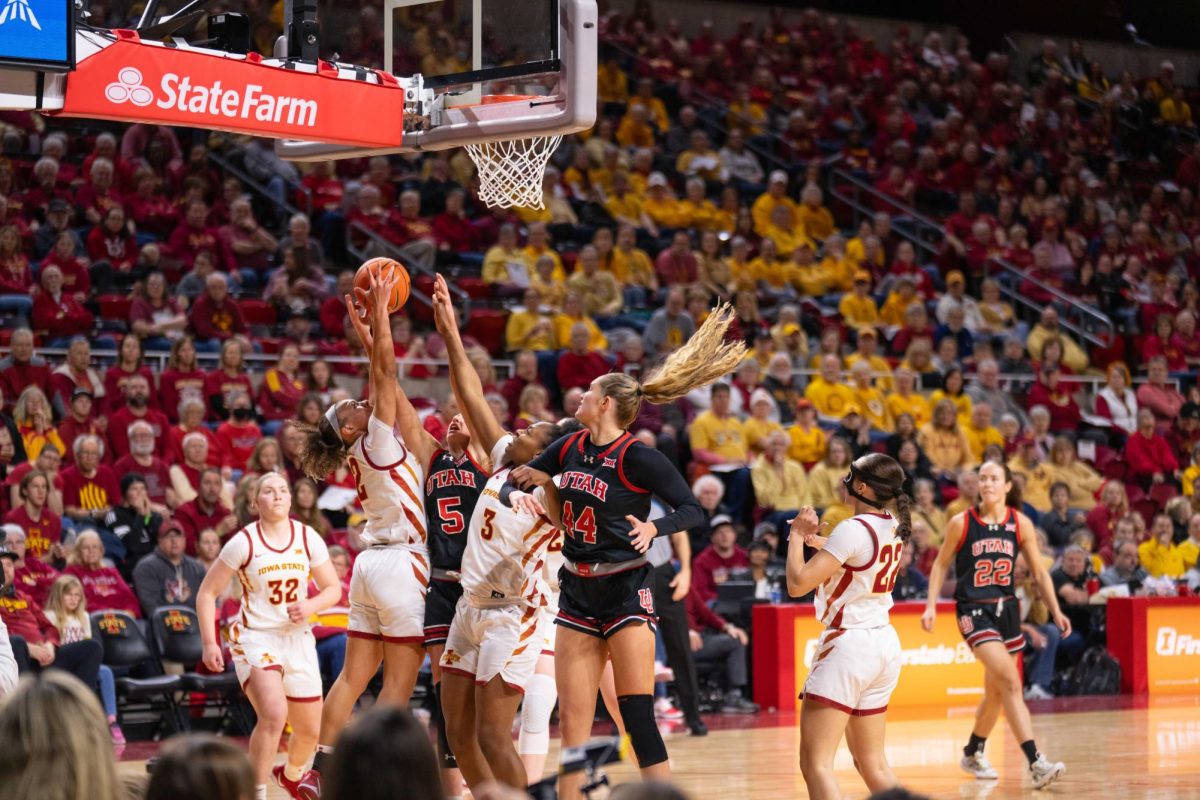Online exchange database simplifies student records
September 19, 2004
The online database that tracks international students and exchange visitors for the Department of Homeland Security has been accepted by the international student community as it enters its second year.
Although initial concerns about unfair monitoring from the Student Exchange Visitor Information System may have subsided, administrative snafus and difficulties still remain. SEVIS essentially takes the kind of information that has been reported to immigration officials by Iowa State for at least a decade and makes it Internet accessible to officials. The information collected includes change of address, graduation dates and any failures to maintain student status.
Before SEVIS, when the records were done by paper, students had some leeway with missing deadlines to report such information because of lags in the mail system. Communication between school and immigration officials could be so slow that sometimes the school would receive official confirmation that a student had arrived in the country 12 months after the fact, said Virginia McCallum, program coordinator for international education services.
With SEVIS, information is real-time. The upshot is that deadlines aren’t so forgiving, resulting in a system with “rules controlled by the software instead of the other way around,” said Patricia Parker, assistant director of admissions.
Rajakumar Sankula, a graduate student in bioinformatics, said that in his fourth year as an international student, he finds SEVIS to be fair and relatively painless. But when he tried transferring to Iowa State this summer, he got firsthand experience of the problems inherent in a computer-based system.
The trouble happened in late July when the school he was transferring from waited a day too late to authorize his transfer. The system by default downgraded his status. Though Sankula wasn’t in danger of being deported, he lost a week of pay he would have earned working an assistantship at Iowa State had his status been correctly reported. It took several weeks of wrangling and a call to Sen. Charles Grassley, R-Iowa, to intervene for the mistake to finally be fixed.
Sankula’s experience is indicative of SEVIS — when the system works, it doesn’t bother most international students, but small mistakes can cause confusion and inconvenience.
“I like the system. There is necessity for such a system. But if a person is not properly informed about it, it appears complex to him,” Sankula said.
The International Education Services office spends a lot of time repeatedly reminding students of deadlines through e-mail and pamphlets, so students haven’t found SEVIS to be complicated.
But if SEVIS is simple for students, it can be a “nightmare” for administrators, Parker said. Fixes, such as the one in Sankula’s case, can take months.
Part of the problem is that the SEVIS Help Desk, which serves as technical support, is not run by immigration officials, but by contract employees, making it difficult to get consistent and correct advice. Also, with the implementation of SEVIS came some rules Parker believes to be draconian.
“It’s been a burden,” Parker said. “Some aspects of it are nice. The result is that America is going to be secure.”
Further complicating SEVIS is a new $100 fee that went into effect on Sept. 1. Though the fee is relatively small, ISU officials are concerned that it will “present a barrier for some students to even apply [to Iowa State],” said Terry Mason, interim director of International Education Services.






